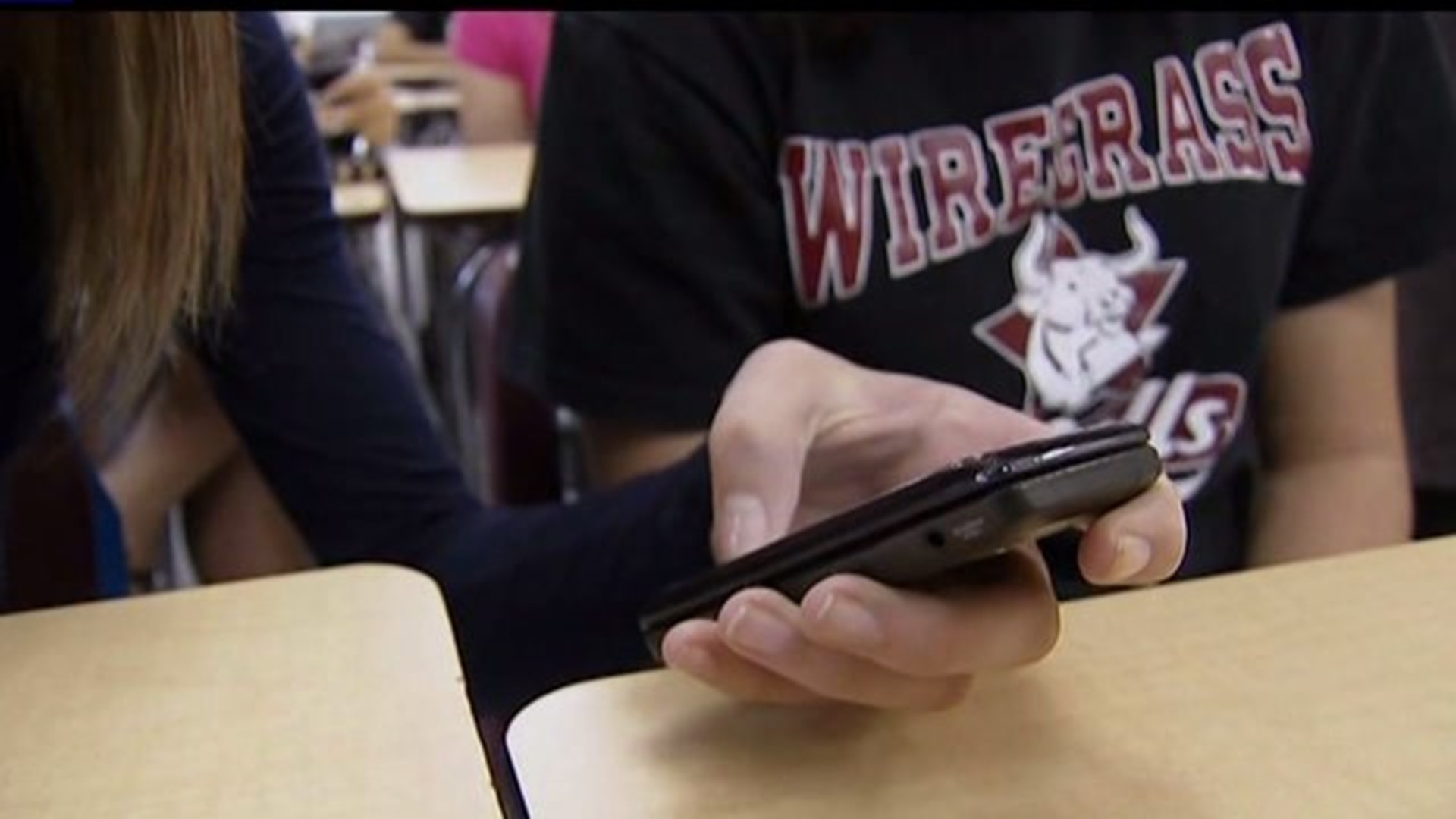DIGITAL DAYS
Kids today are growing up in a far different world than they were just ten years ago. These are the digital days, where you'd be hard pressed to go anywhere without seeing devices being used by the majority.
Parents are concerned, that as schools try to keep up with all the technology, they're leaving some of the basics behind. They say cursive, map reading, and mental math skills such as making change and tipping, are falling by the wayside, as do-it-all devices move in.
The Lancaster Archery Academy in East Lampeter Township is a place kids of all ages can go to take a break from their devices. We caught up with some of the parents and teens to ask them their thoughts on this digital age we're living in.
PARENTS AND TEENS WEIGH IN
"Constantly communicating and always on; that's the way behavioral experts describe all of us these days," says Troy Walters, a senior at Hempfield High School. In these fast paced times, texting is after all, a way to get a quick response. It's also a way to communicate a topic that may otherwise be difficult. "Do you know friends of yours that have broken things off with someone over text?" I asked the teens. "Yeah, that kinda makes it a bit easier if you don`t want to say it to their face," said Walters.
But that "easy way," says child psychologist Erin Waltz, is a big concern in this digital age.
SOCIAL EFFECTS OF TECHNOLOGY
"When you`re doing face-to-face interaction, you can read someone's facial expressions, and you can listen for the pauses whenever they're speaking. Those things you can't pick up on whenever you`re texting a friend, or Facebooking, or Instagramming," she says. Waltz says without having to interpret and respond to these visual cues, children will grow up unable to communicate effectively with their peers, their families, and down the road --in their jobs.
"I mean they can iMessage, Snap Chat, Tweet, Facebook it, and Instagram it, but you can`t get them to walk up to your friends house to play baseball." That, from Laura Reed, who struggles with these issues with her own children. That's one of the reasons she joins other parents who bring their children to the Lancaster Archery Academy. It forces them to take a break.
"So, having device breaks is important so they can actually play and engage. So, whether it`s board games that you`re playing with your kids so they`re off of technology, or taking a walk , or going to the park --we need to get back to doing that," says psychologist Erin Waltz.
EDUCATIONAL EFFECTS OF TECHNOLOGY
Other parents we spoke with are concerned their kids aren't learning basic life skills, since these days, their devices do just about everything for them. "Directions are all digital now. Everything comes built right into your car," says Mark Woodie, a father of two.
Pulling out a road atlas, I asked, "Has anyone seen one of these before?" 19 year old Troy Walters said, "Yeah, it's a road atlas. It`s folded up in the backseat."
I continued to ask, "Do you think any of you could find your neighborhood on this road atlas, and maybe find out how to find a neighboring county?" Walters responded with, "I live right in this area, so you could just take 30 towards York, or if you go the other way you can get to Coatesville, Chester County." Breaking the turns down road-by-road though, wasn't as easy. Walters says he could do it, but why would he since he has GPS?
Another concern for some parents--the lack of time their children spend learning cursive.
"There has been a change with how much of a spotlight is placed on cursive," says Dr. Robert J. Dangler, Assistant Superintendent of Solanco School District. He says, his students begin learning cursive in second grade. We found that's the case for most schools in our area.
"So right now cursive is one of those areas where we basically use it to sign documents. That`s the skill we ask them to definitely use cursive as a methodology of writing, or giving a signature," Dr. Dangler adds.
Some parents though, are concerned that not all teachers require assignments be written out in cursive in their later years. And that, they say, is causing their children to lose that skill.
Dr. Dangler points to the rapidly changing times as a driving force behind what`s being required at school. "In where we live, that right now a signature is important. But even now, we`re talking about other means…the idea of a thumbprint that we use as a way of signaling our mark."
WHAT CAN PARENTS DO?
When it comes to preparing children socially for future relationships, child psychologists say parents play a big part. Set a limited time aside each day for devices. Store them away when they're not in use. Most importantly, lead by example.
"Having parents really set kids as the priority...showing them by their own usage. I put down my device when it`s time for dinner. I put down my device whenever I`m watching your sporting event, I put down the device whenevere you`re engaging in a conversation because I want to look at you. I want to see what you`re doing. I want to see see your response. I want you to do the same for me, so I want to model that for you," says Erin Waltz.
Click here for more information on the Lancaster Archery Academy.
Click here to contact Erin Waltz or another psychologist who work with children.

